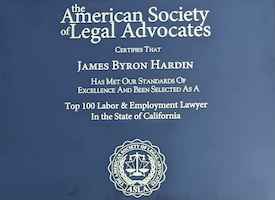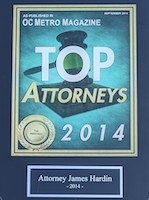What Is Bad Character Evidence in a California Employment Lawsuit?
If an employee sues their employer for discrimination, harassment, or retaliation, the employer may attempt to cast the employee in an unfavorable light. This often takes the form of bad character evidence, which suggests the employee possesses a negative trait. Bad character evidence often has no impact on the legal claims at issue and only serves to prejudice the jury against the employee. In California, courts will exclude bad character evidence if the potential for prejudice outweighs its value in proving the legal claims. For example, a recent Court of Appeals decision ordered a new trial after finding that bad character evidence affected the outcome of a sexual harassment case.
The Facts
According to the facts discussed in the opinion, the plaintiff worked as a lead agent and supervisor at a freight company. She claimed that her supervisor sexually harassed her by calling her names, inappropriately touching her, and messaging her using suggestive emojis. Around the same time, several employees accused the plaintiff of bullying, yelling, lying, and other objectionable behavior. Another supervisor placed the plaintiff on leave while they investigated these complaints, during which she presented her allegations of sexual harassment. When she returned from leave, she was transferred to a different floor with a different supervisor. The plaintiff believed her new position lacked the same opportunities to advance within the company, so she resigned. A year after her resignation, three more women complained that the same supervisor sexually harassed them. The employer then fired the supervisor.
The plaintiff sued her former employer for failure to prevent sexual harassment and retaliation in violation of the Fair Employment and Housing Act (FEHA). Before trial, the plaintiff moved to exclude the evidence of her colleagues’ complaints on her, arguing they were too prejudicial. The trial court allowed the employer to admit the evidence, and the jury found in the employer’s favor. The court further denied the plaintiff’s motion for a new trial. The plaintiff appealed.
The Court’s Opinion
The Court of Appeals reversed and ordered a new trial. It found that admitting the complaints against the plaintiff constituted prejudicial character evidence suggesting she was rude and dishonest. The court agreed with the plaintiff that the prejudicial effect of the evidence far outweighed its probative value, meaning it had little relevance to the key legal claims. In particular, it found that the evidence did not suggest any motive to lie about her supervisor’s harassment or affect her perception of the harassing behavior. Moreover, the trial court erred in providing the jury with vague limiting instructions that did not dispel the prejudicial implications of the evidence. Therefore, the court reversed the verdict in favor of the employer and sent the case back to the trial court.
Are You Experiencing Workplace Discrimination or Harassment?
Employers may try to introduce bad character to absolve themselves of liability. If you are considering whether to bring a claim of discrimination, harassment, or retaliation, reach out to our skilled legal team at Hardin Law Group to learn how to bring a strong case against your employer.





















